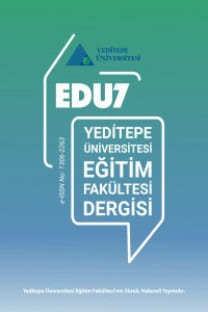Corrective Written Feedback in L2 Writing: The Impact of Direct Written Feedback
This study investigates
the impact of direct corrective written feedback on EFL learners writing
accuracy and to see on which language component it is more effective in terms
of decreasing the number of errors. Two research questions are generated. The
first research question seeks to answer which type of errors show decrease when
direct corrective feedback is provided: grammar or vocabulary. The second
research question is shaped according to the first research question and it
aims to find out which grammar category shows decline in terms of number of
errors in their first and second drafts. As being both the researcher and the
teacher in this study, the treatment is provided by me. The students have
received direct corrective feedback on their first drafts and they are asked to
rewrite and prepare a second draft afterwards. The sample is chosen according
to convenient sampling and the procedure lasted for four weeks. Treatment is
given through four weeks of direct corrective written feedback to 13 EFL
students. Their first and second drafts are analyzed, the number of errors is counted
and the types of errors they made are identified. The results are in accordance
with the hypotheses which are generated at the beginning of this paper. Grammar
errors show the highest decrease as number of errors than the number of
vocabulary errors. As for the second research question, which asks for which
grammar component shows the highest decline when direct corrective feedback is
provided, it is found out that the number of errors in subject-verb agreement
and determiners has been diminished in their second drafts. There are some
major limitations in this study. The first one is the number of the
participants and the sampling. There are generalizability issues in this study
since there are only 13 participants and they are not selected randomly. Second
one is the duration of the study. Although I provided feedback only for 4 weeks
and that is not enough to come up with a generalization, the study still gives
insights about the effectiveness of direct corrective feedback on EFL writing
accuracy.
Anahtar Kelimeler:
feedback
___
- Akcan, S. & Telçeker, H. (2010). The Effect of Oral and Written Teacher Feedback on Students’ Revisions in a Process-Oriented EFL Writing Class. TESL Reporter 43, (1): 31-49
- Bitchener, J., Young, S., and Cameron, D. (2005). The effect of different types of corrective feedback on ESL student writing. Journal of Second Language Writing, 14, 191-205.
- Bitchener, J. and Ferris, D. R. (2012). Written corrective feedback in second language acquisition and writing. New York: Routledge
- Ferris, D. (2007). Response to student writing: Implications for second language students. Journal of Second Language Writing 16: 165–19.
- Keh, C. 1990. Feedback in the writing process: a model and methods for implementation. ELT Journal, 44, 94-304.
- Polio, C., Fleck, N., and Leder, N. (1998). "If only I had more time": ESL learners' changes in linguistic accuracy on essay revisions. Journal of Second Language Writing, 7, 43-68
- Tonekaboni, A. (2016). Effective Feedback in Second Language Acquisition: Oral Feedback vs. Written Feedback. International Research Journal of Applied and Basic Sciences Vol, 10 (2): 153-165.
- Truscott, J. (1996). Review article: the case against grammar correction in L2 writing classes. Language Learning, 46(2), 327-369.
- Yayın Aralığı: Yıllık
- Başlangıç: 2006
- Yayıncı: Yeditepe Üniversitesi
